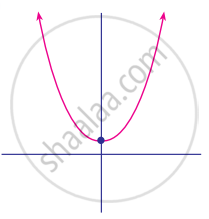Advertisements
Advertisements
प्रश्न
Zero of a polynomial is always 0
विकल्प
True
False
उत्तर
This statement is False.
Explanation:
Because zero of a polynomial can be any real number e.g., p(x) = x – 2, then 2 is a zero of polynomial p(x).
APPEARS IN
संबंधित प्रश्न
Verify whether the following zeroes of the polynomial, indicated against them.
p(x) = lx + m, `x = – m/l`
Verify whether the following zeroes of the polynomial, indicated against them.
p(x) = 3x2 – 1, x = `-1/sqrt3,2/sqrt3`
Find the zero of the polynomial in the following case:
p(x) = 3x – 2
Find the zero of the polynomial of the following:
p(x) = 2x + 5
Find the zero of the polynomial of the following:
p(x) = ax when a ≠ 0
Verify whether the following are zeros of the polynomial, indicated against them, or not
p(x) = x3 – 1, x = 1
Find the number of zeros of the following polynomial represented by their graph

Find p(0), p(1), p(–2) for the following polynomial:
p(x) = 10x – 4x2 – 3
–3 is a zero of y2 + y – 6
If a, b, c are all non-zero and a + b + c = 0, prove that `a^2/(bc) + b^2/(ca) + c^2/(ab) = 3`.
